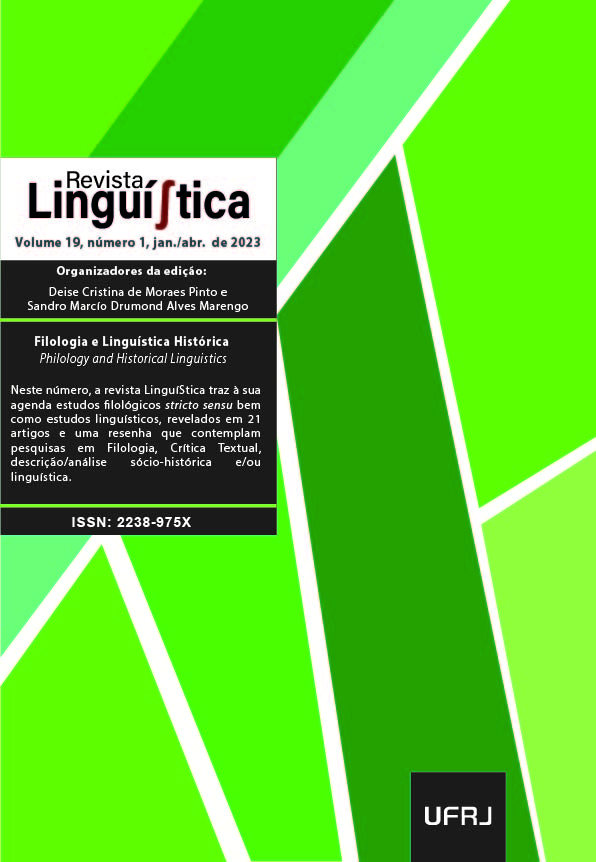“Se aparecer noticias serias ahi, escreva-me”: subject-verb agreement in letters from the 19th century bahian sertão
DOI:
https://doi.org/10.31513/linguistica.2023.v19n1a58260Keywords:
historical Sociolinguistics, Brazilian Portuguese, verbal agreement, variation, 19th century Bahia.Abstract
This paper discusses the historical fit of third person plural clause variation in 19th century Brazilian Portuguese (BP), based on a corpus of 190 letters written by 43 senders and addressed to Cícero Dantas Martins, the Baron of Jeremoabo. Although the variation in third person plural clause agreement has been exhaustively studied in contemporary BP data, dealing with this linguistic phenomenon from a historical perspective is still a challenge for researchers, given the limitations imposed by the nature of the corpora that allow investigating previous phases of the language. In addition to these limitations, the present discussion is based on the theoretical and methodological principles of Historical Sociolinguistics (ROMAINE, 1982), in dialogue with Historical Linguistics and Philology, seeking to reflect on the linguistic and social factors that condition the variable presence/absence of explicit plural marks in third-person verb forms. By submitting the variables to the GoldVarb X Program, one can see the conditioning of the position of the subject in relation to the verb, the semantic characterization of the subject, the type of verb, and phonic salience in the application of the agreement rule. As for the social variables, only a qualitative analysis made it possible to discuss the influence of the social variables on the object under study, given the limitations imposed by the nature of the documentation used as corpus. In general, this opens the way to a better understanding of the historical process of variation in verbal agreement, the “cornerstone” of Brazilian Portuguese, in order to make better use of “limited” and fragmentary data.Downloads
Published
Issue
Section
License
Copyright (c) 2023 Revista Linguí∫tica

This work is licensed under a Creative Commons Attribution-NonCommercial 4.0 International License.
Authors who publish in the Revista Linguí∫tica agree with the following terms:
The authors maintain their rights, ceding to the journal the right to first publication of the article, simultaneously submitted to a Creative Commons license permitting the sharing with third-parties of published content as long as it mentions the author and its first publication in the Revista Linguí∫tica.
Authors may enter into additional agreements for the non-exclusive distribution of their published work (for example, posting in online institutional or non-profit repositories, or book chapters) so long as they acknowledge its initial publication in the Revista Linguí∫tica.

The journal Revista Linguí∫tica is published by the Post-Graduate program in Linguistics of UFRJ and employs a Creative Commons - Attribution-NonCommercial 4.0 International (CC-BY-NC).









